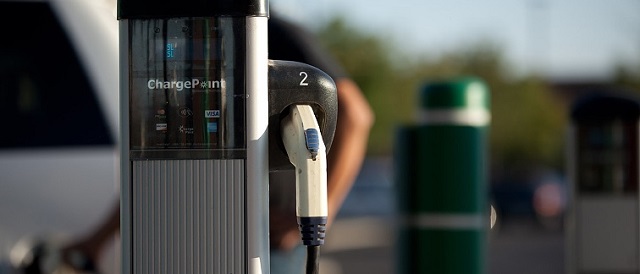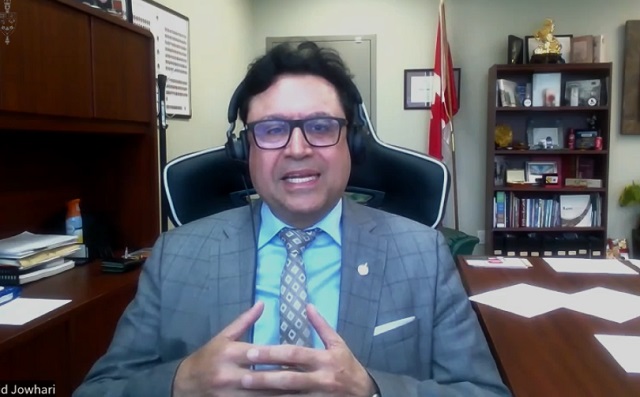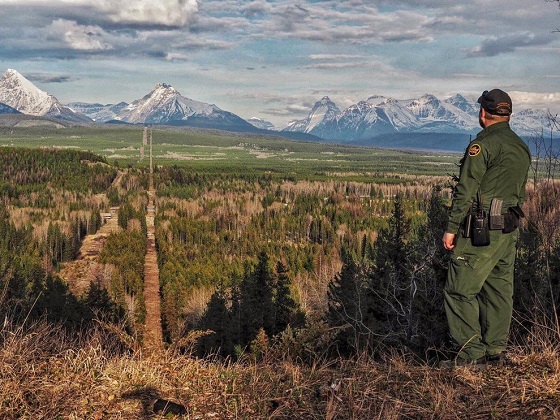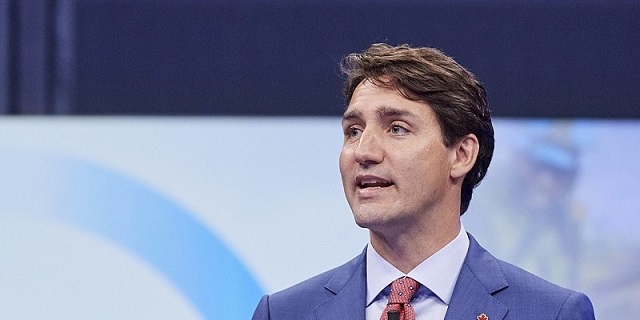Uncategorized
American on deadly trip to Indian island: ‘God sheltered me’

NEW DELHI — The young American, paddling his kayak toward a remote Indian island whose people have resisted the outside world for thousands of years, believed God was helping him dodge the authorities.
“God sheltered me and camouflaged me against the coast guard and the navy,” John Allen Chau wrote before he was killed last week on North Sentinel Island. Indian ships monitor the waters around the island, trying to ensure outsiders do not go near the Sentinelese, who have repeatedly made clear they want to be left alone.
When a young boy tried to hit him with an arrow on his first day on the island, Chau swam back to the fishing boat he’d arranged to wait for him off shore. The arrow, he wrote, hit a Bible he was carrying.
“Why did a little kid have to shoot me today?” he wrote in his notes, which he left with the fishermen before swimming back the next morning. “His high-pitched voice still lingers in my head.”
Police say Chau knew that the Sentinelese resisted all contact by outsiders, firing arrows and spears at passing helicopters and killing fishermen who drift onto their shore. His notes, which were reported Thursday in Indian newspapers and confirmed by police, make clear he knew he might be killed.
“I DON’T WANT TO DIE,” wrote Chau, who appeared to want to bring Christianity to the islanders. “Would it be wiser to leave and let someone else to continue. No I don’t think so.”
Indian authorities have been trying to figure out a way to recover Chau’s body after he was killed last week by islanders who apparently shot him with arrows and then buried his body on the beach.
Even officials don’t travel to North Sentinel, where people live as their ancestors did thousands of years ago. The only contacts, occasional “gift-giving” visits in which bananas and coconuts were passed by small teams of officials and scholars who remained in the surf, were years ago.
Police are consulting anthropologists, tribal welfare experts and scholars to figure out a way to recover the body, Dependera Pathak, director-general of police on India’s Andaman and Nicobar Islands, where North Sentinel is located, said Thursday.
Chau paid fishermen last week to take him near North Sentinel, using the kayak to paddle to shore and bringing gifts including a football and fish.
Scholars know almost nothing about the island, from how many people live there to what language they speak. The Andamans once had other similar groups, long-ago migrants from Africa and Southeast Asia who settled in the island chain, but their numbers have dwindled dramatically over the past century as a result of disease, intermarriage and migration.
Chau estimated there were about 250 inhabitants on the island, with at least 10 people living in each hut.
“The tribe’s language has a lot of high pitched sounds like ba, pa la and as,” he wrote.
It’s not clear what happened to Chau when he swam back to the island the next morning. But on the morning of the following day, the fishermen watched from the boat as tribesmen dragged Chau’s body along the beach and buried his remains.
Seven people have been arrested for helping Chau, including five fishermen, a friend of Chau’s and a local tourist guide, police say.
In an Instagram post, his family said it was mourning him as a “beloved son, brother, uncle and best friend to us.” The family also said it forgave his killers.
Authorities say Chau arrived in the area on Oct. 16 and stayed on another island while he prepared to travel to North Sentinel. It was not his first time in the region: he had visited the Andaman islands in 2015 and 2016.
With help from the friend, Chau paid fishermen $325 to take him there, Pathak said.
After the fishermen realized Chau had been killed, they left for Port Blair, the capital of the island chain, where they broke the news to Chau’s friend, who notified his family, Pathak said.
Police surveyed the island by air Tuesday, and a team of police and forest department officials used a coast guard boat to travel there Wednesday. It was not clear if they have returned since then.
Chau, whose friends described him as a fervent Christian, attended Oral Roberts University in Tulsa, Oklahoma. Before that he had lived in southwestern Washington state and went to Vancouver Christian High School.
___
Associated Press writer Tim Sullivan contributed to this report.
Ashok Sharma, The Associated Press
Uncategorized
RCMP recruitment failure has Alberta advocacy group calling for Provincial Police Service

News release from Free Alberta Strategy (A Strong And Sovereign Alberta Within Canada)
“Make no mistake, we are paying for these services that we aren’t receiving. Alberta’s taxpayers are paying tens of millions of dollars for nearly 400 vacant RCMP officer positions – for boots that are not on the ground.”
A recent report from the Royal Canadian Mounted Police (RCMP)’s independent Management Advisory Board had findings that are nothing short of alarming:
“Federal policing has now arrived at a critical juncture of its sustainability, which present risks for the national security and safety of Canada, its people, and its interests,” says the report.
After over a year of diligent study, the Board has been tirelessly firing off flares, signalling to all who will listen: the very foundation of our national public safety apparatus may be at risk of faltering.
This is doubly problematic because, as you well know, the RCMP is also responsible for boots-on-the-ground policing in large parts of the country, including many rural and remote areas – including in Alberta.
Rural crime has been a longstanding issue in Alberta, and social disorder continues to make headlines nightly.
Alberta Minister of Public Safety, Mike Ellis, took to social media platform X (formerly known as Twitter) to express his opinion:
“The independent report finds the RCMP has struggled in recent years to recruit and retain regular members, a problem that’s particularly acute in federal policing. This is not about the hard-working men and women on the frontline: they are doing everything they can. The reality is the RCMP do not have enough officers to police communities in Canada effectively.”
Ellis has been ahead of this story for months now.
In March, Ellis stated that:
“… on average, Alberta has an RCMP officer vacancy rate of 20 per cent. This means that Alberta is only being served by 1,522 of the 1,911 RCMP officers that the federal government has authorized for Alberta.”
“Make no mistake, we are paying for these services that we aren’t receiving. Alberta’s taxpayers are paying tens of millions of dollars for nearly 400 vacant RCMP officer positions – for boots that are not on the ground.”
The consequences of this capacity crisis are far-reaching.
Not only does it jeopardize the safety of Albertans, but it also undermines the credibility of Canada’s federal police force on the international stage.
With limited resources and personnel, the RCMP’s ability to address pressing national and global security concerns is severely compromised.
The Management Advisory Board, created in 2019 by the federal government to provide external advice to the RCMP commissioner, set up a task force in the fall of 2022 to study the federal policing program.
Overall, the report says budget and personnel shortfalls have left the RCMP “operationally limited,” restricting the number of cases it can take on annually.
Here are some more highlights from the report:
“Canada and its people have already begun to see the repercussions of the federal policing program being stretched thin.”
“Federal policing’s overall eroding capacity may have implications for the credibility of Canada’s federal police force and its investigations on the international stage.”
“Ultimately, this may influence Canada’s overall approach and standing in international politics, including its ability to advance global priorities.”
Clearly, we cannot afford to wait any longer.
Municipalities can ease the burden on our national security services by establishing municipal policing.
Several cities in Alberta already have their own police authorities, and the provincial government is providing funding for others interested in exploring this option.
Grande Prairie is already in the process of establishing their own municipal police service.
No word on how many other municipalities have taken the government up on their offer.
Unfortunately, President of Alberta Municipalities Tyler Gandam (also Mayor of Wetaskiwin) is featured prominently on the National Police Federation’s “Keep Alberta RCMP” website.
Interestingly, the Keep Alberta RCMP website doesn’t mention the fact that the advisory board even exists.
It doesn’t mention the report.
The notion that our federal policing infrastructure teeters on the brink of instability while Gandam appears to be asleep at the wheel, is deeply disconcerting.
The safety and security of Albertans must remain our top priority.
We cannot afford to wait any longer.
The time has come for the province to take swift and decisive measures to bolster policing capabilities in Alberta.
It’s time for Alberta to seriously consider the establishment of an Alberta Provincial Police Service.
It has been one of the core tenets of the Free Alberta Strategy.
If you agree, please reach out to your municipality and ask them to take steps to protect your community.
Together, we can keep Alberta safe.
Regards,
The Free Alberta Strategy Team
P.S. We’re hoping you’ll consider contributing to our cause. Your generous donation helps us make a positive impact in our community. No need to worry about any hold-ups or threats here. We’re just passionate about making a difference, and your support goes a long way in helping us achieve our goals.
Uncategorized
Making Alberta a geothermal energy leader

Eavor announces it’s the #1 geothermal energy startup company in the world – January 2024
Alberta is creating Canada’s first geothermal test site to advance drilling innovation, reduce emissions and create jobs.
Geothermal energy uses naturally occurring heat within the earth to heat water and buildings and generate power, with few emissions or environmental impacts. Alberta has vast pockets of heat below ground, making the province Canada’s geothermal leader, but testing and developing new technologies can be a barrier for many companies. Unlike the United States, Japan and other countries, Canada does not currently have an open-access test site to help spur innovation.
Alberta is taking the first steps to create a new Alberta Drilling Accelerator. This groundbreaking facility would be the first of its kind in Canada, establishing Alberta as a global hub for geothermal technology. This will drive new innovations in geothermal and other clean energy projects that can reduce emissions and power communities around the world.
To kick-start the project, the Alberta government is investing $750,000 to conduct a feasibility study led by Calgary-based Eavor Technologies and other stakeholders. The study is the first step in assessing the proposed facility. It will include identifying a site, business planning, research on the governance model, an economic impact analysis and stakeholder engagement that will lay the groundwork for the initial planning stages of the project.
“Alberta has been a global energy leader for more than a century, renowned for our skilled workforce, innovation and one of the largest oil and gas reserves on the planet. The proposed Alberta Drilling Accelerator presents enormous potential to help our province lead the next wave of energy projects here at home and around the world that reduce emissions, create jobs and enhance energy security.”
The Alberta Drilling Accelerator would help companies test out and develop new geothermal drilling techniques or technologies to reduce emissions and drive growth across the clean energy sector. It would be an open-access, technology-agnostic drilling test facility capable of drilling in challenging environments, including deep depths, high temperatures and different rock types.
The accelerator also would help speed up the development of carbon capture, utilization and storage; helium; critical minerals; and other clean technologies and commodities that rely on Alberta’s drilling sector. All of this helps attract investment and bring new technologies to scale in Canada.
“With cumulative geothermal investment poised to reach $1 trillion by 2050, a geothermal arms race is very much underway to commercialize novel drilling techniques that accelerate geothermal development – exhibited by testing facilities in the United States, China and Iceland. As Canada’s first geothermal test bed, the Alberta Drilling Accelerator will help bring geothermal technologies to scale, supporting companies like Eavor. We commend the Government of Alberta for this bold initiative.”
“We are proud to witness Eavor, a CDL-Rockies alumni company, create new opportunities for innovators like themselves to advance the adoption of energy transition technologies like geothermal. The Alberta Drilling Accelerator will further solidify Alberta’s position as a leader in the global sustainable energy landscape.”
If the feasibility study shows the facility is economically and environmentally viable, and if the project is approved by the Alberta government, the facility will start taking shape at the selected site and drilling could start as early as 2025.
“Canada is home to the most advanced drilling technology in the world. Not only do our members support the responsible development of oil and gas, but we are integral in the extraction of new energy resources like geothermal and critical minerals. Our workers are at the epicentre of Canada’s energy transformation. Our people, technology and processes are leading the way towards a more diverse energy future. The Alberta Drilling Accelerator is a government-enabled policy approach to expand Alberta’s drilling capacity and reach its full potential as the world’s most diverse and technologically advanced producer and exporter of sustainable energy and critical minerals.”
“The Alberta Drilling Accelerator is a testament to Alberta’s innovative and entrepreneurial spirit. Leveraging our oil and gas sector expertise, Alberta is poised to become the global leader in developing new geothermal technologies that will play an integral role in reducing emissions while supporting job creation.”
Quick facts
- The Canadian Association of Energy Contractors estimates that one active drilling rig, whether drilling for natural gas or geothermal, creates approximately 220 direct and indirect jobs and
$1 million in tax revenue. - In 2019, Eavor received $2 million in provincial funding through Emissions Reduction Alberta and Alberta Innovates for the world’s first closed-loop geothermal system.
Related information
-

 Energy3 hours ago
Energy3 hours agoTech giants’ self-made AI energy crisis
-

 Energy1 day ago
Energy1 day agoNew Report Reveals Just How Energy Rich America Really Is
-

 Automotive1 day ago
Automotive1 day agoBiden’s Climate Agenda Is Running Headfirst Into A Wall Of His Own Making
-

 Economy1 day ago
Economy1 day agoFeds spend $3 million to fly 182 politicians and bureaucrats to climate conference
-

 Addictions11 hours ago
Addictions11 hours agoLiberals shut down motion to disclose pharma payments for Trudeau’s ‘safe supply’ drug program
-

 Energy2 days ago
Energy2 days agoPope Francis calls for ‘global financial charter’ at Vatican climate change conference
-

 Crime2 days ago
Crime2 days agoThe US Canadian border: Greatest number of terrorist watch list individuals being apprehended at northern border
-

 illegal immigration2 days ago
illegal immigration2 days agoSuspected Terrorists Illegally Entering US Up Over 2,500% Under Biden From Trump Era









